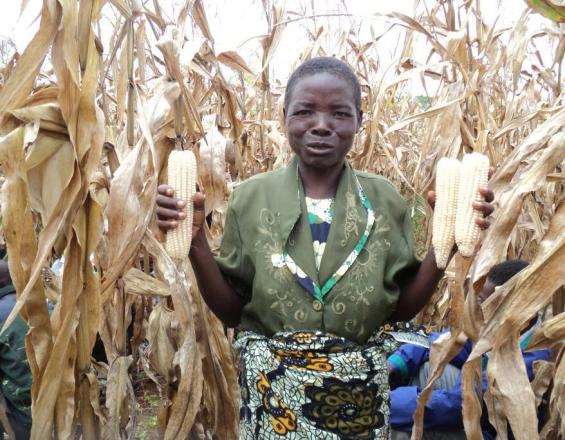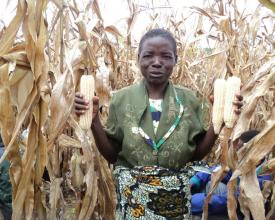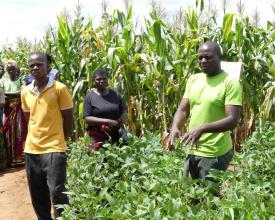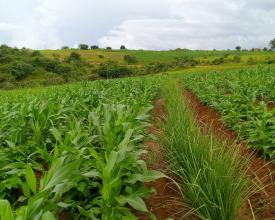
Renforcer la résilience des petits exploitants au Malawi

Tiyeni aide les agriculteurs du Malawi à atteindre la sécurité alimentaire en augmentant la productivité des terres, en s'attaquant aux effets néfastes du changement climatique et en renforçant la durabilité.
Tiyeni dispense une formation spécialisée sur la méthode de culture en couches profondes : un ensemble de pratiques agricoles durables qui préservent les sols et l'eau, augmentent la fertilité des sols et aident les agriculteurs à doubler le rendement de leurs cultures au cours de la première année d'adoption de la méthode. Certaines des pratiques clés consistent à briser la couche dure du sol, à créer des lits de plantation le long de crêtes de marquage précises, à créer des sillons en caisson, des sentiers surélevés pour éviter le compactage des lits, l'application de fumier, la couverture organique du sol par des paillis et des cultures de couverture, l'agroforesterie, des associations de plantes comprenant des légumineuses et l'absence de brûlage des résidus de culture pour améliorer la fertilité.
Tiyeni dispense des formations aux groupes d'agriculteurs, aux agents de vulgarisation sur le terrain du ministère de l'agriculture (MoAIWD) et des ONG, ainsi qu'aux institutions de recherche et d'enseignement impliquées dans les activités agricoles.
Impacts
Cette intervention intègre une série de pratiques de gestion des terres non destructrices et durables sur le plan environnemental, économique et social :
a) Social - permet de renforcer les organisations de producteurs et les réseaux de la société civile : - renforce les liens et la coopération entre les petits exploitants au niveau local - est ancré dans les communautés qu'il dessert - habilite les chefs de file à gérer des groupes d'agriculteurs - renforce la souveraineté alimentaire
transfère le contrôle à toutes les principales parties prenantes du projet afin de diffuser et de mettre en œuvre le système de couches profondes.
b) Économique - renforce la capacité des petits exploitants agricoles à tirer le maximum de revenus du rendement des cultures et de l'éradication de la faim - enseigne les techniques de commercialisation - relie les groupes d'agriculteurs aux marchés - sort les agriculteurs du cycle de la faim récurrente de 5 ans - améliore les moyens de subsistance des agriculteurs en augmentant le revenu des excédents de récolte - minimise les pertes alimentaires ou le gaspillage grâce à la formation au stockage des récoltes - près de 30 % du rendement des récoltes est généralement perdu à cause des ravageurs et de la pourriture.
c) Environnement - amélioration de la rétention d'eau, de la texture et de la fertilité des sols, de la biodiversité et de la quantité des plantes, ainsi que de la productivité des cultures - petite agriculture durable au niveau des bassins versants - couvert végétal plus sain à la surface du sol - intégration de l'agroforesterie dans la petite agriculture afin d'accroître la séquestration du carbone et de réduire la déforestation.


